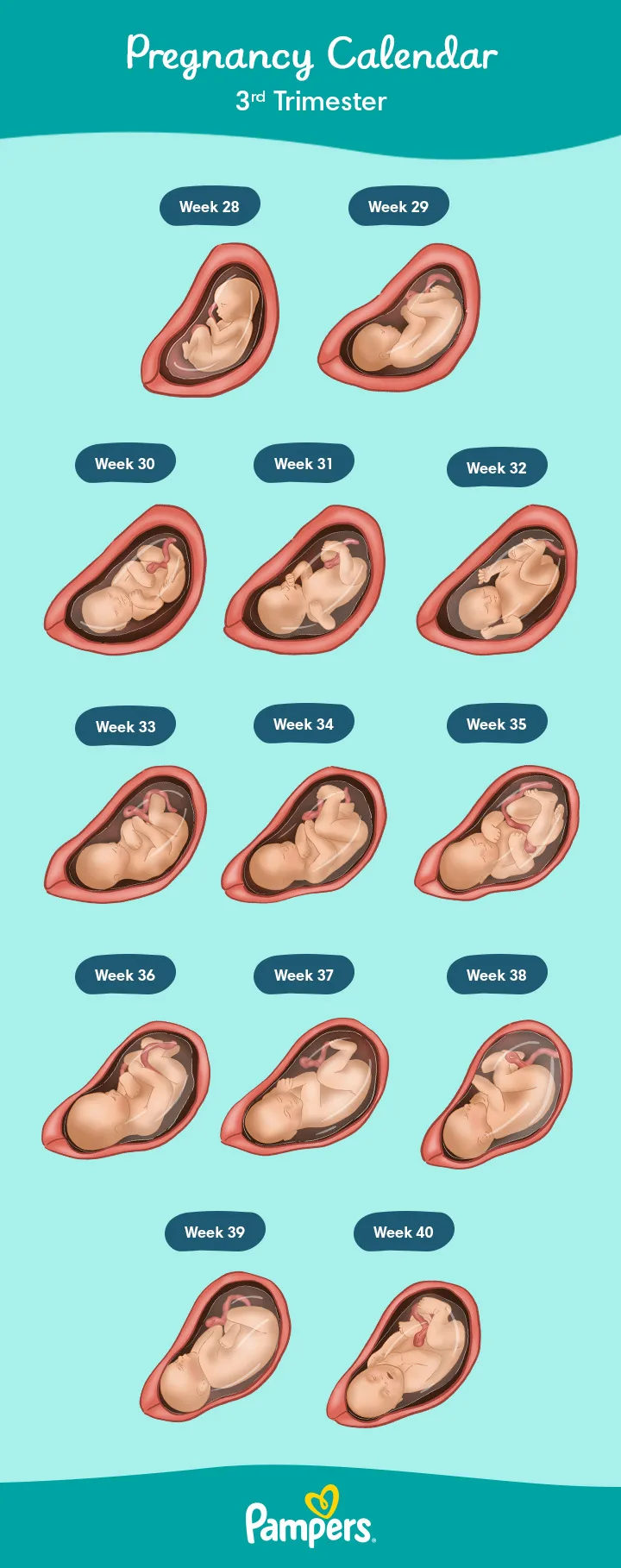Understanding the Warning Signs of Preeclampsia at 32 Weeks
Hello, amazing moms and dads out there! You’re on an incredible journey, and as you reach the 32-week mark, it’s more important than ever to stay informed about your health and the wellbeing of your little one. Today, we’re going to chat about preeclampsia, a condition that can occur during pregnancy, most often after the 20-week mark. Specifically, we’ll delve into the signs that can show up around 32 weeks and what they could mean for you and your baby. ??
Preeclampsia is a pregnancy complication characterized by high blood pressure and signs of damage to another organ system, most often the liver and kidneys. It’s crucial to catch early as it can lead to serious, even fatal, complications for both you and your baby if left untreated. So, let’s stay vigilant and understand the symptoms to look out for. Your awareness can make all the difference!
Key Signs of Preeclampsia at 32 Weeks Pregnant
- High Blood Pressure: One of the primary signs of preeclampsia is high blood pressure, which can be quite sneaky, as it doesn’t usually come with noticeable symptoms. Make sure you’re attending your regular prenatal appointments, where your healthcare provider will monitor your blood pressure closely.
- Protein in Urine: Another telltale sign is the presence of protein in your urine, detected during routine prenatal visits. So, don’t skip those urine tests—they’re more important than you might think!
- Sudden Swelling: While some swelling in your feet and ankles is a normal part of pregnancy, a sudden increase in swelling, especially in your hands and face, can be a red flag for preeclampsia.
- Severe Headaches: Persistent or severe headaches that don’t ease with over-the-counter pain relief, rest, or other typical remedies should be reported to your healthcare provider. It could be a sign that your blood pressure is too high.
- Vision Changes: Experiencing blurred vision, light sensitivity, or seeing spots? These are vision disturbances that may indicate preeclampsia and should not be ignored.
- Upper Abdominal Pain: Pain, particularly on the right side under your ribs, might be indicative of liver involvement, which can occur with preeclampsia. Let your doctor know about any unusual pain you experience.
- Nausea or Vomiting: While these can be common in pregnancy, a recurrence of these symptoms in the second half of pregnancy, especially in combination with any other signs, could suggest preeclampsia.
What You Can Do to Stay Safe
Your best defense against preeclampsia is to stay alert to your body’s signals and maintain open communication with your healthcare team. Always attend your scheduled prenatal checkups, as these are vital for catching any potential issues early. And most importantly, never hesitate to reach out to your doctor if you’re feeling “off” or if something seems concerning. It’s always better to be safe and get checked out!
Pregnancy can be a rollercoaster of emotions and experiences, but with the right knowledge and attention to your well-being, you can keep the safety of you and your baby at the forefront. Keep gleaming with that beautiful pregnancy glow, and remember, being informed is being empowered! ??
In the upcoming sections of our guide, we’ll dive deeper into what preeclampsia is, how it’s treated, and ways you can proactively manage your health to minimize your risks. Because let’s face it, you’ve got this, and we’re here to help you every step of the way! ? Stay tuned for more empowering tips and insights for your pregnancy journey!

Five Things Parents Should Know in Preparing for Signs of Preeclampsia
1. Understand What Preeclampsia Is
Knowledge is your first layer of protection. Preeclampsia is a condition that occurs in pregnancy and the postpartum period that is characterized by high blood pressure and often a significant amount of protein in the urine. It affects 5-8% of all pregnancies and can lead to serious health problems if not promptly managed. Understanding what preeclampsia is can help you better recognize the symptoms and understand the urgency of seeking care.
2. Regular Monitoring is Key
The sneaky nature of preeclampsia means that routine monitoring is crucial. Be sure to keep all prenatal appointments, and if possible, monitor your blood pressure at home. This is especially important if you have a history of high blood pressure or preeclampsia in previous pregnancies. Make a habit of tracking your blood pressure readings so you can notice any sudden changes.
3. Know Your Risk Factors
Several factors can increase your risk of developing preeclampsia, including:
- First-time pregnancy
- History of preeclampsia
- Multiple gestation (twins, triplets, etc.)
- Chronic hypertension, kidney disease, or both
- Personal or family history of preeclampsia
- Obesity (BMI of 30 or greater)
Being aware of these risks can help you and your healthcare provider take early action.
4. Diet and Lifestyle Considerations
Although there’s no proven prevention for preeclampsia, maintaining a healthy lifestyle might reduce your risk. This includes:
- Eating a balanced diet that’s rich in fruits, vegetables, whole grains, and lean proteins
- Limiting your intake of salt
- Drinking plenty of water
- Exercising regularly, as advised by your healthcare provider
- Keeping to a healthy weight gain plan
These habits can contribute to overall pregnancy health and may help prevent complications.
5. Recognize the Symptoms and Act
Being able to identify the early signs of preeclampsia can allow for quicker treatment which can be vital for a positive outcome. Watch for high blood pressure, protein in your urine, sudden swelling in your hands and face, severe headaches, vision changes, upper abdominal pain, and nausea or vomiting. If you observe any of these symptoms, contact your healthcare provider immediately.
Remember, preeclampsia can progress rapidly, and every moment matters when it comes to the health of you and your baby. Your vigilance and preparedness could truly be life-saving. Keep listening to your body and trust your instincts. You’re doing a fabulous job at this parenting thing—and we’re all cheering you on as you approach the finish line of your pregnancy journey!
Disclaimer: The information provided in this comprehensive guide is not intended for self-diagnosis or treatment. Always consult healthcare professionals for medical advice and treatment.
See more great Things to Do with Kids in New Zealand here. For more information see here
Disclaimer
The articles available via our website provide general information only and we strongly urge readers to exercise caution and conduct their own thorough research and fact-checking. The information presented should not be taken as absolute truth, and, to the maximum extent permitted by law, we will not be held liable for any inaccuracies or errors in the content. It is essential for individuals to independently verify and validate the information before making any decisions or taking any actions based on the articles.




